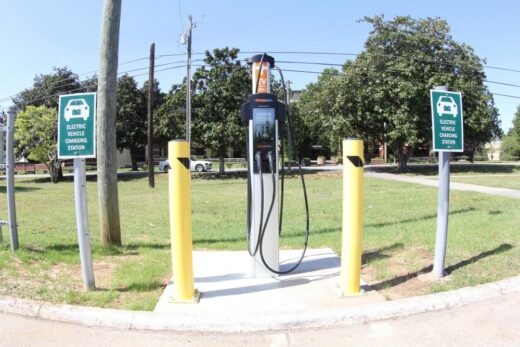
Pennsylvania has begun charging owners of electric and plug-in hybrid vehicles a yearly Road User Charge (RUC).
The new fee, which was established by Act 85 and later amended by Act 149 in 2024, is designed to create a new system for funding road and bridge maintenance, according to PennDOT.
The fee began to be charged as of April 1.
For decades, Pennsylvania’s transportation infrastructure has been primarily funded through state and federal gas taxes. As electric vehicles (EVs) and plug-in hybrid electric vehicles (PHEVs) use little to no gasoline, their owners contribute less to the state’s Motor License Fund.
According to PennDOT, the RUC ensures that all drivers contribute to maintaining the state’s transportation network, regardless of the type of vehicle they drive.
Under the new regulations, owners whose vehicle registration expires after May 2025 will be required to pay the annual fee.
PennDOT says on their website that they will mail a notice with payment instructions to impact vehicle owners, who will initially need to submit a check or money order within 30 days of the notice. Payment of the RUC will be a prerequisite for future vehicle registration renewals.
In 2025, the yearly fee is $200 for EVs and $50 for PHEVs. The amounts will increase in 2026 to $250 for EVs and $63 for PHEVs.
Going forward, the fees will be tied to the consumer price index, according to PennDOT.
PennDOT is developing an online payment system for the RUC, which expected by the state transportation department to be available by August.
The implementation of the RUC also replaces the previous Alternative Fuels Tax for EV and PHEV owners of vehicles with a gross vehicle weight rating of 14,000 pounds or less.
State officials noted that the RUC simplifies the process for EV and PHEV owners by eliminating the need for tracking electricity usage and complex tax calculations.
The move to implement the RUC comes amid a projected $250 million shortfall in gas tax revenue for Pennsylvania in 2024 compared to pre-pandemic levels in 2019, according to a December report by the state’s Independent Fiscal Office (IFO).
In the report, the IFO cited increased fuel efficiency in vehicles, a rise in remote work leading to fewer commutes, and a decrease in overall personal vehicle ownership as contributing factors to the decline.
The average vehicle fuel efficiency improved from just under 25 miles per gallon in 2019 to 29 mpg in 2024, according to U.S. Environmental Protection Agency data.
In addition, the IFO found, registered passenger vehicles in the Keystone State dropped to 7.8 million in 2023, the lowest since 2010.
While most electric and plug-in hybrid cars will be subject to the new fee, exemptions include golf carts, electric motorcycles, vehicles from 1990 or older, and certain government vehicles, PennDOT said.
Discussions about addressing the declining gas tax revenue have been ongoing in Harrisburg for years, including an unsuccessful proposal in 2021 to shift to a mileage-based fee.
Advertisement

Convenient Legal Access to High Quality Cannabis Just A Few Minutes Away!









